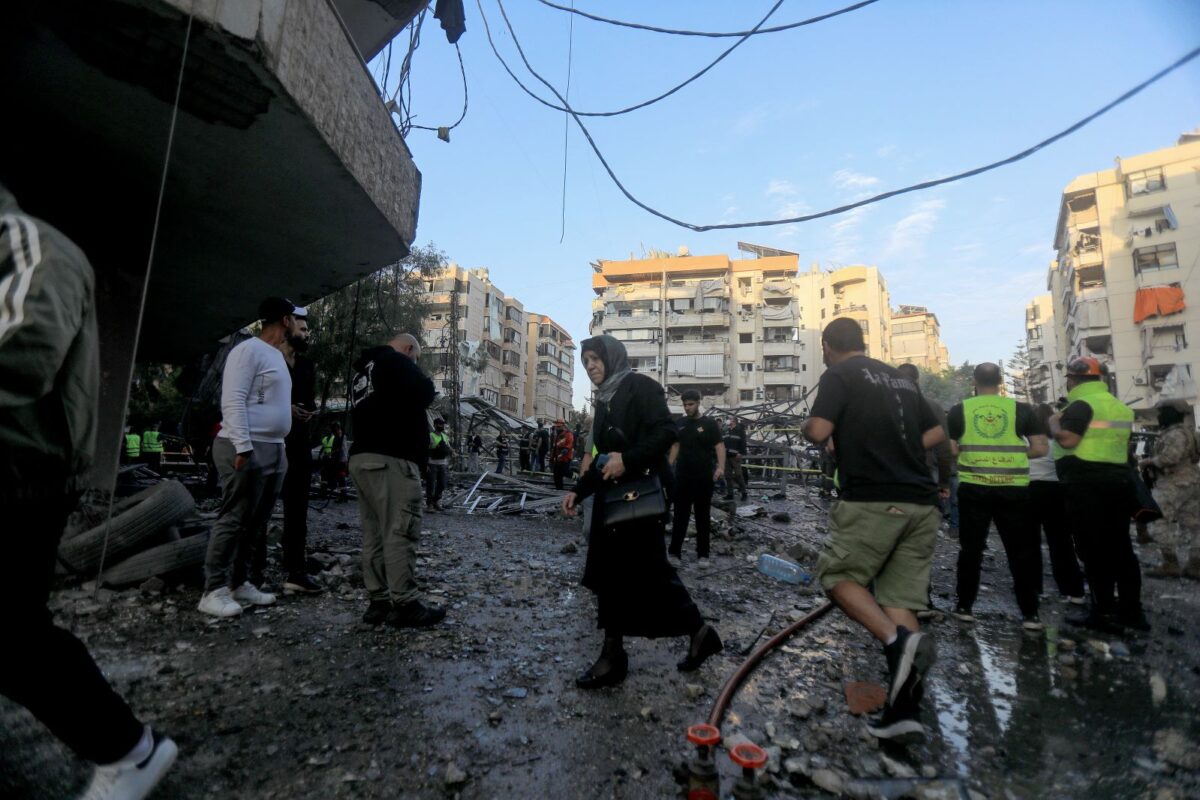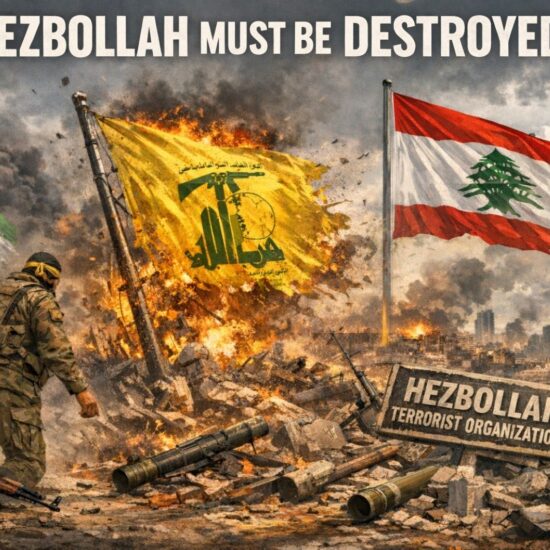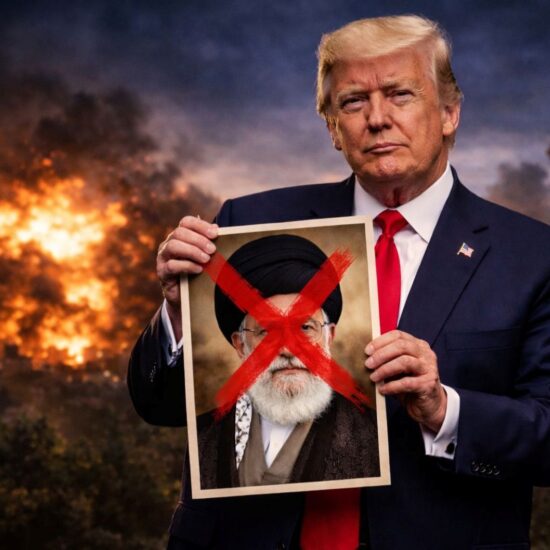
As Lebanon continues to face attacks from Israel, the uncertainty surrounding Iranian-American negotiations adds to the region's instability. The ongoing violence further complicates diplomatic efforts, with the U.S. and Iran still grappling with key issues that impact not only their bilateral relations but also the broader Middle East.
On the Ground in Lebanon
On Sunday, Israel bombed the Hadath neighborhood in Beirut’s southern suburbs, sending heavy smoke billowing over the area. The strike, which came without any prior Hezbollah action, marked the third Israeli assault on the Lebanese capital since the ceasefire took effect in late November. No casualties were immediately reported.
Before the attack, Israeli army spokesperson Avichay Adraee issued a warning urging civilians to evacuate, claiming Hezbollah was using local facilities. However, no clear provocation had occurred, and the strike joins a growing list of Israeli breaches of the ceasefire agreement.
Lebanese President Joseph Aoun denounced the assault, calling it a blatant act of aggression. He urged the United States and France to intervene and pressure Israel to halt its attacks.
While Israeli strikes have repeatedly targeted southern Lebanon since November, raids on Beirut remain less frequent. Nonetheless, this month alone, Israel has already conducted two prior attacks on the capital, including one in the Dahieh district.
The situation across Lebanon remains extremely volatile. Although the ceasefire officially stands, repeated Israeli strikes have deepened public fear and heightened the risk of a rapid escalation. Many Lebanese, already grappling with years of political and economic crises, now live under the shadow of renewed conflict.
UN Special Coordinator for Lebanon Jeanine Hennis warned that Sunday’s airstrike had caused widespread panic among civilians, many of whom are desperate for a return to stability. She urged all parties to avoid actions that could drag the country back into open confrontation.
In Lebanon
Banking Sector Reform: Fadi Khalaf, Secretary-General of the Association of Banks in Lebanon, stressed that restructuring the banking sector requires a special legal framework, taking into account the severe dysfunction in Lebanon’s public administration and finances. In the Association’s latest monthly report, he called for flexible legal measures to protect compliant banks and emphasized the need for a national plan to safeguard depositors, recapitalize banks, and link financial reforms to broader public sector reforms. Khalaf said the IMF program offers a path to economic recovery but requires innovative solutions tailored to Lebanon’s unique crisis.
Qatar Visit: Minister of Culture Ghassan Salameh concluded a visit to Qatar, meeting with Qatari Prime Minister and Foreign Affairs Minister Mohammed bin Abdulrahman bin Jassim Al Thani. Talks focused on strengthening bilateral cooperation and developments in Lebanon. The Qatari Prime Minister reiterated his country’s full support for Lebanon and emphasized the importance of all sides adhering to the ceasefire agreement and ensuring Israeli withdrawal from Lebanese territory.
New Currency Denominations: Lebanon is preparing to issue higher denominations of its currency — LBP 500,000 and LBP one million — following parliamentary approval of a new law. Production will start once the law is signed and published, with new notes expected to circulate in about a year. Officials said the move aims to ease daily transactions, though concerns persist about further currency devaluation. Authorities ruled out a full redenomination, citing the prohibitive cost of replacing all denominations.
Disarmament of Palestinian Camps: Palestinian President Mahmoud Abbas will visit Lebanon on May 21–22 to discuss the disarmament of Palestinian refugee camps, amid Beirut’s efforts to ensure that only state forces control weapons on Lebanese territory. The Palestinian Authority reportedly does not oppose disarmament. Preparations to disarm the Beddawi camp in northern Lebanon have already begun, with the army controlling access points.
Presidential Condemnation of Israeli Strikes: President Joseph Aoun condemned Israel’s latest airstrike on Beirut’s Hadath suburb, calling on the U.S. and France to intervene and stop Israel’s ceasefire violations. He reiterated Lebanon’s commitment to UN Security Council Resolution 1701 and warned that continued Israeli aggression threatens regional stability. Minister of Information Paul Morcos reported that Israel has violated the November 2024 ceasefire agreement 2,740 times, resulting in at least 190 deaths.
In the Region
Islamist Leaders Reject Kurdish Federalism Plans: Syria’s Islamist leaders warned that Kurdish demands for a decentralized political system threaten national unity.
“We clearly reject any attempt to impose partition or create separatist cantons under federalism or self-autonomy without a national consensus,” said a statement from Syrian leader Ahmed al-Sharaa’s office. Rival Syrian Kurdish parties, meeting in Qamishli, agreed on a joint political vision calling for Kurdish national rights to be enshrined in any future Syrian constitution after Bashar al-Assad’s ouster.
Formation of ‘Elite Forces’: Rami Makhlouf, cousin of former Syrian dictator Bashar al-Assad, announced the creation of 15 military divisions under the “Elite Forces” in Syria’s coastal region, allegedly backed by popular committees numbering in the hundreds of thousands.
In Facebook posts, Makhlouf referred to Assad as a “fake Assad” and claimed he and his loyalists, led by Commander “al-Nimr” (Suhail al-Hasan), could have prevented Syria’s downfall.
Nuclear Negotiations Resume in Oman: Iran and the United States began in-depth talks in Muscat, Oman, over Tehran’s advancing nuclear program.
Iranian Foreign Minister Abbas Araghchi and U.S. Mideast envoy Steve Witkoff are leading the negotiations, with mediation from Oman’s Foreign Minister Badr al-Busaidi.
The talks aim to curb Iran’s uranium enrichment activities in exchange for easing U.S. sanctions, amid heightened tensions and warnings from U.S. President Donald Trump about possible airstrikes if no deal is reached.
Drone Attack in Hermel Injures Syrian Refugees: A drone explosion wounded eight Syrian refugees in the Lebanese border village of Hawsh al-Sayyed Ali. The Lebanese Army deployed reinforcements after gunfire was reported. Meanwhile, Syria accused Hezbollah of shelling Syrian army positions near Qusayr and said its forces responded by targeting the source of fire, later ceasing attacks at the Lebanese Army’s request.
Border tensions have been escalating, with Syria previously accusing Hezbollah of abducting and killing Syrian soldiers in Lebanese territory—an accusation Hezbollah denies.
‘Some Progress’ in Gaza Negotiations: Qatar announced “some progress” in the ongoing ceasefire talks between Israel and Hamas, mediated this week in Doha. Qatari Prime Minister Sheikh Mohammed bin Abdulrahman bin Jassim Al Thani mentioned the development during a press conference but declined to confirm reports of a meeting with Israeli Mossad chief David Barnea.
The talks aim to end months of fighting in Gaza and secure a sustained ceasefire.
What We Are Reading
The Loyalty That Survived Betrayal: Political psychologist Ramzi Abu Ismail analyzes Hezbollah’s recent rejection of disarmament as an indication of its deepened commitment to deterrence and maintaining regional influence. He observes that despite prior signals of readiness for negotiation, the group’s current stance reveals a shift towards uncompromising rhetoric, echoing Iran’s broader strategy in the region. The refusal to discuss disarmament suggests Hezbollah’s prioritization of strength, both within Lebanon and in its broader geopolitical calculations.
The American University of Beirut vs. the Axis of Shallowness: Managing Editor of Now Lebanon, Makram Rabbah, discusses the American University of Beirut’s commemoration of the Lebanese Civil War’s 50th anniversary, highlighting its role in resisting the political class’s efforts to erase history. He contrasts AUB’s stance with the backlash from Hezbollah and the Axis of Shallowness, who attempted to politicize the university’s events, particularly regarding a delayed “Palestine Week.” Rabbah critiques their actions as a cover for authoritarianism and Iran-backed propaganda, rejecting efforts to hijack academic spaces for political purposes.
Hezbollah’s disarming dilemma and Lebanon’s future: Journalist Rodayna Raydan discusses Hezbollah’s recent shift on disarmament after severe losses in its latest conflict with Israel. With weakened military capabilities and disrupted supply routes, Hezbollah has considered negotiating its weapons’ handover to the Lebanese Army if Israel withdraws from southern Lebanon. While disarmament is now debated, the issue remains contentious, with some advocating for immediate action, while others call for a gradual, negotiated approach to avoid destabilization.
Lebanon’s gold… To hold, liquify or sell: that is the question: Journalist Maan Barazy covers the ongoing debate about Lebanon’s gold reserves, particularly following the appointment of Karim Souaid as the governor of Banque Du Liban. With Lebanon holding significant gold reserves, valued at over $28 billion, Governor Souaid has proposed using a portion of these reserves to provide liquidity, though he opposes selling the gold. The discussion centers on leveraging these assets for Lebanon’s financial recovery amid the ongoing crisis.








